In a brief but significant opinion, the United States District Court for the District of Delaware reversed a decision by the United States Bankruptcy Court for the District of Delaware and allowed more than $30 million in unsecured, post-petition fees incurred by an indenture trustee ("Indenture Trustee").1 In reversing, the District Court relied upon a uniform body of Court of Appeals opinions issued on the subject.
Bankruptcy Court Opinion
The Indenture Trustee was trustee to a class of unsecured subordinated debentures issued by Tribune Media Company ("Debtor"). The Indenture Trustee filed a proof of claim in Debtor's bankruptcy case seeking, among other claim components, over $30 million in post-petition fees (the "Fee Claim").2 The Indenture Trustee filed the claim pursuant to a confirmed plan of reorganization that permitted the Indenture Trustee to seek a general unsecured claim for any fees and expenses incurred arising under the indenture. The reorganized Debtor objected to the Trustee's claim, and late in 2015, the Bankruptcy Court disallowed the Fee Claim.
The Bankruptcy Court relied primarily upon Global Indus. Tech. Serv. Co. v. Tanglewood Inv., Inc. (In re Global Indus. Tech., Inc.), 327 B.R. 230, 239 (Bankr. W.D. Pa. 2005) in disallowing the Indenture Trustee's Fee Claim. The Bankruptcy Court noted four overlapping arguments from the Global Industries opinion that persuaded it to disallow the Fee Claim:
- First, relying on an analog of the maxim expressio unius est exclusio alterius (the expression of one is the exclusion of the alternatives), unsecured creditors are not entitled to post-petition fees because §506(b) of the Bankruptcy Code expressly provides for the allowance of post-petition attorneys' fees only for oversecured creditors, but no Bankruptcy Code provision allows such fees for unsecured creditors.
- Second, the United States Supreme Court previously ruled in Timbers that §506(b) permits only oversecured creditors to recover post-petition interest on their claims.3 Using a similar analysis to the argument above, the Bankruptcy Court found that since §506(b) provides for the allowance of post-petition fees and interest only to oversecured creditors, unsecured creditors must be excluded from having claims for post-petition fees.
- Third,Bankruptcy Code § 502(b) requires a court to determine the amount of a claim as of the date the petition was filed. By definition, post-petition fees have not accrued as of the petition date and therefore cannot be considered as part of the claim. The source of post-petition fees under the Bankruptcy Code is §506(b), which adds post-petition interest and fees only to the extent a creditor is oversecured (as noted in the first two arguments).
- Finally,it would be inequitable to allow certain unsecured creditors to recover post-petition fees at the expense of certain other unsecured creditors who are not entitled to recover post-petition attorney's fees.
The Bankruptcy Court also briefly addressed the Supreme Court's opinion in Travelers.4 Travelers concerned whether a party may recover post-petition fees authorized by a prepetition contract. In reversing a prevailing rule of law in Ninth Circuit,5 the Supreme Court held that "an otherwise enforceable contract allocating attorney's fees . . . is allowable in bankruptcy except where the Bankruptcy Code provides otherwise."6 The Bankruptcy Court was not persuaded by the Indenture Trustee's argument that Travelers, therefore, permits unsecured creditors to claim post-petition fees. Rather, the Bankruptcy Court rejected the argument, noting that in Travelers the Supreme Court wrote: "we express no opinion with regard to whether, following the demise of the Fobian rule, other principles of bankruptcy law might provide an independent basis for disallowing Travelers' claim for attorney's fees."7
The Indenture Trustee appealed the decision to the US District Court.
District Court (Appellate) Opinion
The District Court's opinion was brief and turned on the pronouncement in Travelers that, "claims enforceable under applicable state law will be allowed in bankruptcy unless they are expressly disallowed."8 Although the Third Circuit has not opined on the matter, the District Court cited opinions from the First, Second, Seventh, Ninth, and Eleventh circuits,9all of which have "allowed unsecured claims for contractual attorneys' fees that accrued post-filing of the bankruptcy petition." The District Court specifically held: "I cannot conclude that Section 506(b) 'expressly' disallows the claims at issue here. Thus, I agree with the position adopted by every court of appeals faced with this question; Section 506(b) does not limit the allowability of unsecured claims for contractual post-petition attorneys' fees under Section 502."
This ruling is the latest in a growing line of opinions favoring unsecured creditors (including in the capacity as indenture trustees) with claims for post-petition fees. Such rulings strengthen the ability of indenture trustees to protect the interests of constituent creditors, particularly unsecured noteholders.
1 Wilmington Trust Co. v. Tribune Media Co. (In re Tribune Media Co., et al.), Case No. 15-01116 (RGA) (D. Del. Nov. 26, 2018)
2 The Fee Claim is the disallowed portion of the proof of claim that was the subject of the Indenture Trustee's appeal.
3 United Sav. Ass'n of Texas v. Timbers of Inwood Forest Assoc., Ltd., 484 U.S. 365, 108 S.Ct. 626, 98 L.Ed.2d 740 (1988).
4 Travelers Cas. & Sur. Co. of Am. v. Pac. Gas and Elec. Co., 549 U.S. 443, 127 S.Ct. 1199, 167 L.Ed.2d 178 (2007).
5 The Supreme Court rejected the so-called Fobian rule, which provided that a party may not recover attorney's fees when the post-petition litigation concerns not basic contract enforcement questions, but issues "peculiar to federal bankruptcy law." See id. at 447.
6 Id. at 448.
7 Id. at 456.
8 Id. at 452.
9 See UPS Capital Bus. Credit v. Gencarelli (In re Gencarelli), 501 F.3d 1 (1st Cir. 2007); Ogle v. Fid. & Deposit Co. of Md., 586 F.3d 143 (2d Cir. 2009); Busson-Sokolik v. Milwaukee Sch. Of Eng'g (In re Sokolik), 635 F.3d 261 (7th Cir. 2011); SNTL Corp. v. Ctr. Ins. Co. (In re SNTL Corp.), 571 F.3d 826 (9th Cir. 2009); Welzel v. Advocate Realty Invs., LLC (In re Welzel), 275 F.3d 1308 (11th Cir. 2001).


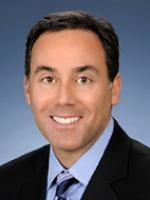
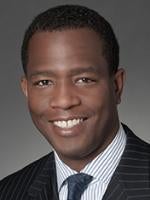
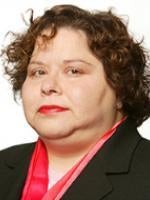
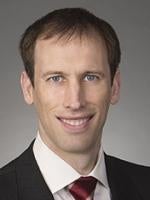
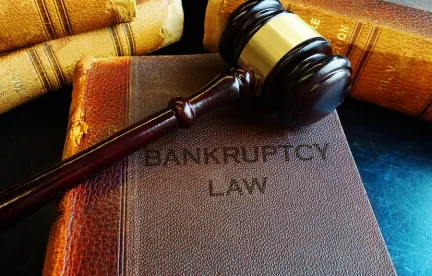
 />i
/>i

